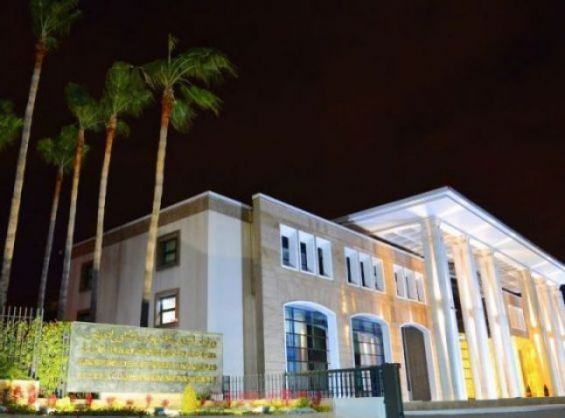Thousands of Moroccans have remained stranded abroad for more than two months due to the coronavirus health crisis. After grounding the flights and closing its borders, Morocco was hailed for the preventive measures it has taken to avoid the virus but has been unable to repatriate its nationals stuck all over the world.
In addition to the conventional administrative support, Morocco’s embassies and consulates were asked to provide logistical, medical and financial support for the stranded nationals in need. The initiative aimed to assist these nationals, pending repatriation, and at the same time wait for the Covid-19 situation to stabilize before taking further steps. While awaiting a flight home, the number of Moroccans assisted by embassies abroad grew bigger, going from 3,800 by the end of April to
5,704 two weeks later.
But since early May, the number of Moroccans supported by consulates and embassies abroad is no longer being updated while that of stranded Moroccans continues to grow. Meanwhile, the number of those who are no longer able to support themselves and families while stranded has also been on the rise.
Every week, Moroccan diplomats around the world see additional nationals requiring their help. Managers, businesspeople, doctors, lawyers as well as elected officials find themselves forced to get by with 50 euros a week.
Meanwhile, frontliners working in embassies and consulates have grown exhausted of having to manage the situation, with no weekends nor days off.
Diplomatic staff on the front line
The financial assistance promised by the Ministry of Foreign Affairs is mainly based on the budget allocated to the chancelleries and the bonuses of diplomats. Thus, diplomatic staff see a substantial part of their bonuses used for the assistance purposes, while everyone believes that there is a special budget sent by Rabat exclusively for the stranded Moroccans.
«We see no problem in contributing with the equivalent of two days of our monthly wages, but here we are asked to take care of the hotel and the food using our own remuneration», a Moroccan diplomat in Africa, who requested anonymity, told Yabiladi.
Many diplomats have refused to speak to Yabiladi on the topic, fearing a possible sanction by the ministry. But the pressure has become so unbearable that some of them had to speak up. A Moroccan stranded in a Sub-Saharan African country has been denied help after requesting it for the second time. «I helped you at the begining but now I cannot anymore. The money in question is taken from my children's to pay for your hotel, it is no longer possible to carry on. I'm sorry», the ambassador told the lady.
The same goes for a group of Moroccans stranded in an Asian country. They received a first aid, a second one and then nothing. The accommodation costs, food and sometimes even the medicine costs for a few dozen people quickly become unbearable for small embassies who receive no help from Rabat. «We are ready to give our time and put in extra hours, but
we are in a fragile African country, with a high cost of living and a fragile health system. We are afraid for ourselves and our families», a diplomat in an African country said.
«There is 'stranded Moroccan' and 'stranded' Moroccan...»
The selflesness of another diplomat was put to the test by the contradictory injunctions from Rabat. While the Minister has always communicated on the equal treatment of stranded citizens in need, calls are received asking for unjustified care.
For instance, a wealthy business manager would have sent an invoice coming from the 5-star hotel he was staying at and requesting full support. The invoice that we were able to consult for the first month of confinement amounted to approximately 50,000 Dirhams ($ 5,000). «I do not understand that we are demanding from our embassy to cover the costs of a luxury hotel for an entrepreneur who does business here, while other Moroccans are stranded penniless and not asking for much», said the diplomat almost in tears.
But sometimes, covering the costs of a luxury hotel is necessary when there is no other alternative, as all other establishments would be closed or in case it is impossible to move people to another city. Yet, in a European country, it is another story. «We cover the costs for basic hotels but not palace hotels of course», a diplomat said. The same goes for an ambassador in an Asian country, who does not hesitate to swap hotels, and sometimes even cities, to make sure that the embassy can afford it. «We cannot guarantee the luxurious lifestyle of some of our wealthy compatriots who had come to spend their all inclusive holidays at a resort», he told Yabiladi.
Contrary to appearances, the situation of diplomatic personnel in countries with few Moroccans stranded is not the easiest one to manage. Indeed : smaller diplomatic representations suppose smaller staff, hence smaller means.
Conversely, the European countries hosting a large number of stranded compatriots are also those with larger Moroccan diasporas. In addition to logistical, food, medical, administrative support, many associations, companies or just individuals provide valuable financial assistance. These are all financial resources saved by the Ministry of Foreign Affairs which should have released a larger budget for smaller, struggling embassies.
The other solution is proposed by the president of an association who scrambles to help his fellow countryfolk: «I don't understand why we don't repatriate them. If it had been done gradually like the other countries, the stranded Moroccans would all have finished their quarantine by now and they would have returned home. Keeping them abroad is more
expensive than repatriating them!»
*Contacted on several occasions, the Minister of Foreign Affairs did not respond to our requests.





 chargement...
chargement...













